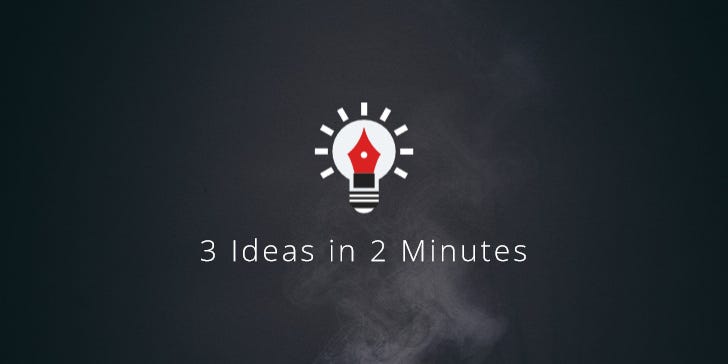#175: Eisenhower Matrix, Iterative Decision-Making & Compounding Decisions
3 Ideas in 2 Minutes on Compounding Decisions
I. Eisenhower Matrix
The Eisenhower Matrix is a decision-making model used to prioritise tasks by importance and urgency. Based on the principles of U.S. President Dwight D. Eisenhower, you divide your tasks into four categories:
Is it urgent and important? Don’t waste time. Do it now.
Is it important but not urgent? Take your time to decide when you will do it.
Is it urgent but unimportant? Delegate your task to someone else.
Is it neither important nor urgent? Then why hurry? Do it later.
There’s only one challenge: You have to be realistic and accurate about assessing your tasks as urgent/non-urgent and important/not important.
👉 For more thinking models like this, check out my article on 5 Little-Known Concepts to Navigate the World.
II. Iterative Decision-Making
When you’re facing a debate over big decisions in unknown circumstances and nobody wants to budge, try Iterative Decision-Making. According to former U.S. Navy SEAL and leadership instructor Jocko Willink, it’s the process of making and executing small decisions to learn more about a situation. In a talk with his partner Dave Berke, he gave the example of SEALs being ordered to assault a hill.
So, Dave, if I tell you, hey, I want you to assault that hill, and you say, I don’t think that’s a good idea. And I say, well, we need to get it done. And you say, well, I don’t think it’s going to be worth the effort and the casualties that we could take. There’s where we’re at. There’s our line in the sand.
But here’s what Dave could say to resolve the situation using Iterative Decision-Making:
You know what, Jocko, I don’t know about assaulting that hill. Why don’t we start with this. I’ll move 100 meters closer, I’ll send a couple scouts up. We’ll see if there’s any cover that we could get. If it looks like we are taking fire, I can pull them back. If we’re not taking fire and we find good cover, I’ll proceed a little further.
That’s it. That’s iterative decision making. And it includes iterative execution.
III. Compounding Decisions
Making big decisions is overrated as small decisions can quickly grow exponentially. Here’s British writer C.S. Lewis making this point more eloquently.
Good and evil both increase at compound interest. That is why the little decisions you and I make every day are of such infinite importance. The smallest good act today is the capture of a strategic point from which, a few months later, you may be able to go on to victories you never dreamed of.
—C.S. Lewis
🐘
Have a great week,
Chris
themindcollection.com

